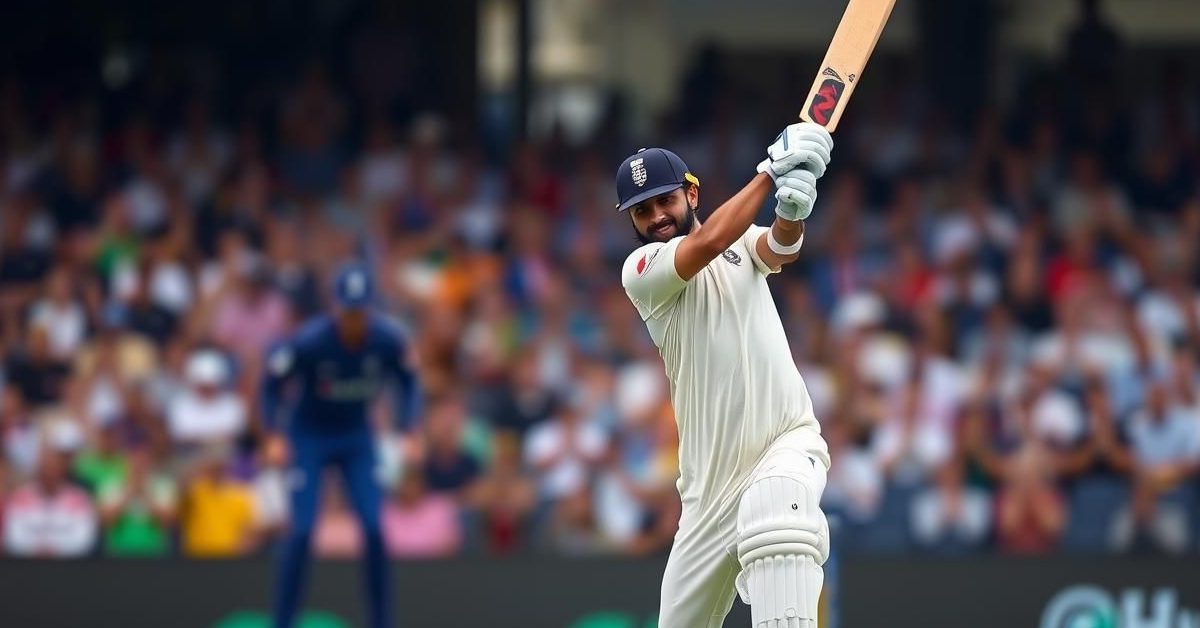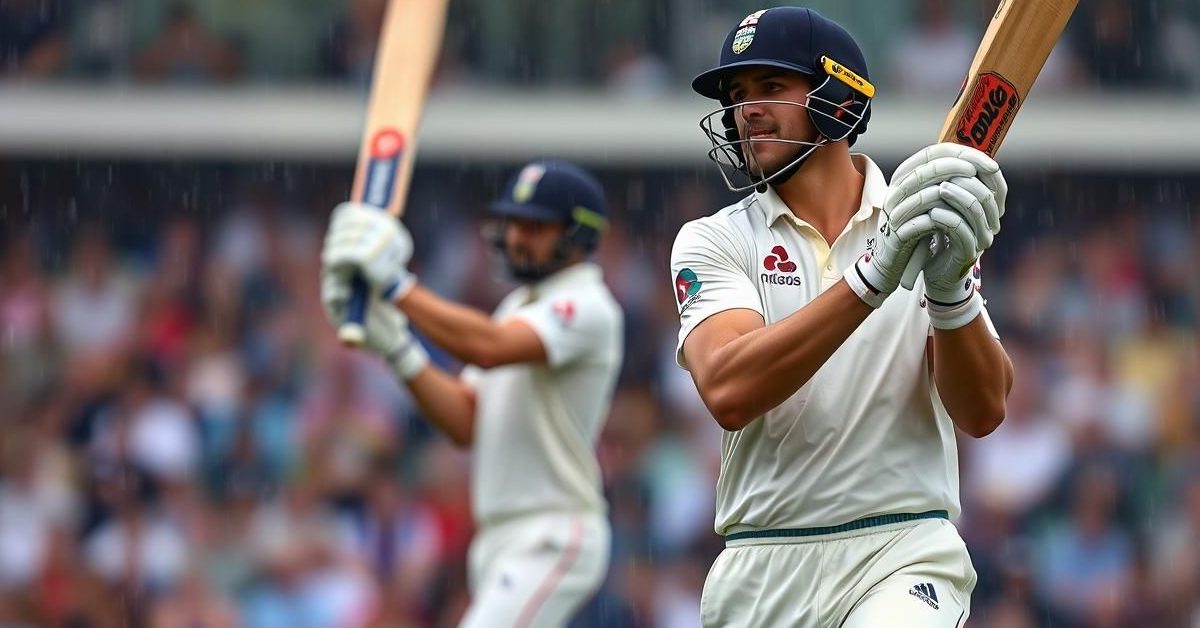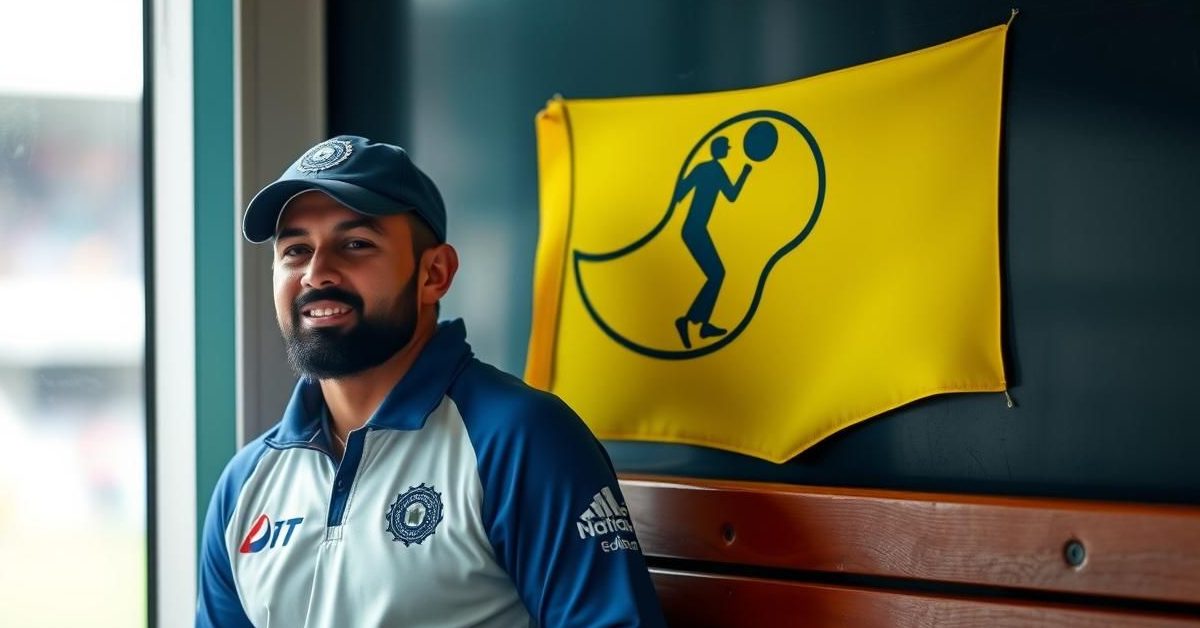A recent Test cricket match between India and England in Manchester sparked a heated debate after England captain Ben Stokes offered a draw, only for Indian batsmen Ravindra Jadeja and Washington Sundar to decline, choosing instead to bat for their individual centuries.
The Controversial Final Hour
During the fifth Test’s final day, with a draw seemingly inevitable, Ben Stokes made a sporting gesture: he offered to call the match off. This is a common practice when neither team can realistically win, saving time and avoiding a forced continuation.
However, Jadeja and Sundar, both nearing their maiden Test hundreds, opted to continue batting. Their decision meant the match had to proceed into the mandatory 15 overs, leading to a flurry of discussion among cricket pundits and former players.
David Lloyd: “Take the Bails Off”
Former England cricketer David Lloyd was among those strongly critical of the Indian batters’ choice. Speaking on ‘The Overlap’s cricket,’ Lloyd argued that there’s a clear “facility to end the game” when a stalemate is reached.
He emphatically stated, “Take the bails off because it’s a farce.” Lloyd questioned the value of achieving a century under such circumstances, suggesting it goes against the spirit of the game when a draw has already been established by agreement.
Tabraiz Shamsi’s Counter-Argument
South African spinner Tabraiz Shamsi offered a contrasting view, wondering why the situation caused such a stir. On social media, he questioned the outrage, stating that India was “fully entitled to make their choice.”
Shamsi pointed out that the Indian batsmen worked hard for their runs and were within their rights to pursue their milestones. He concluded that “Game over,” implying no further fuss was necessary.
Dale Steyn’s Nuanced Perspective
Legendary fast bowler Dale Steyn acknowledged the complexity of the situation, describing it as an “onion [with] many layers.” While he recognized India’s right to bat on, he highlighted a subtle issue.
Steyn noted that the primary objective for the batters was a draw, which had already been accomplished. He suggested that offering a handshake at that point is “the gentlemanly thing to do.” Pursuing “free milestones” after the draw is secured, though within the rules, seemed “a little, well, odd” to him.
- Ben Stokes offered a draw in the Manchester Test, but Indian batters declined.
- David Lloyd called the continuation a “farce,” advocating for an immediate stalemate.
- Tabraiz Shamsi defended India’s right to pursue centuries, seeing no issue.
- Dale Steyn found it “odd” to pursue milestones after the draw was effectively secured, despite being within the rules.
The incident reignited the long-standing debate about sportsmanship versus adhering strictly to the rules in cricket, leaving the community divided on what constitutes the correct decision in such unique circumstances.
A recent Test cricket match between India and England sparked significant debate after England captain Ben Stokes offered a draw, but Indian batters Ravindra Jadeja and Washington Sundar chose to bat on for their centuries.
The Manchester Match Controversy
On the final day of the fifth Test in Manchester, with a draw looking highly probable, England captain Ben Stokes made a sporting offer: to end the match early. This kind of handshake agreement often happens in Test cricket when a result is out of reach for both teams.
However, the Indian batsmen, Ravindra Jadeja and Washington Sundar, who were both approaching their maiden Test hundreds, declined the offer. Their decision meant the game had to continue into the mandatory 15 overs, leading to widespread discussion among former players and commentators.
David Lloyd’s Strong Viewpoint
Former England cricketer David Lloyd, known affectionately as ‘Bumble’, was among the most vocal critics of the Indian team’s choice. Speaking on ‘The Overlap’s cricket,’ Lloyd argued there’s a clear mechanism to conclude a game when a stalemate is reached.
“Take the bails off because it’s a farce,” Lloyd asserted, expressing his belief that the continuation was unnecessary. He questioned the value of achieving a century in such a situation, suggesting it went against the spirit of the game once a draw was effectively decided.
Tabraiz Shamsi’s Defense
South African spin bowler Tabraiz Shamsi offered a counter-perspective, expressing confusion over why the incident generated so much controversy. He took to social media to state that India was “fully entitled to make their choice” and that their decision should not be overblown.
Shamsi emphasized that the Indian batters had worked hard for their runs and were within their rights to pursue their individual milestones. For him, the game was simply “over” once the centuries were achieved, and the fuss was unwarranted.
Dale Steyn’s Nuanced Take
Cricket legend Dale Steyn provided a more balanced, albeit critical, view, describing the situation as an “onion [with] many layers.” While acknowledging India’s right to continue batting, he highlighted a point of contention.
Steyn pointed out that the primary goal for the batters was to secure a draw, which they had already accomplished. He suggested that offering a handshake at that point would have been “the gentlemanly thing to do.” Pursuing “free milestones” after the draw was secured, while technically within the rules, seemed “a little, well, odd” to him, though he praised their batting effort.
- Ben Stokes’ draw offer was declined by Indian batters in a Test match.
- David Lloyd criticized the decision, calling it a “farce” and advocating for a stalemate.
- Tabraiz Shamsi defended India’s choice, stating they were entitled to pursue centuries.
- Dale Steyn found it “odd” to chase milestones after a draw was effectively secured.
This incident has reignited discussions within the cricketing world about the balance between strict adherence to rules and the unwritten codes of sportsmanship, sparking varied opinions across the globe.













